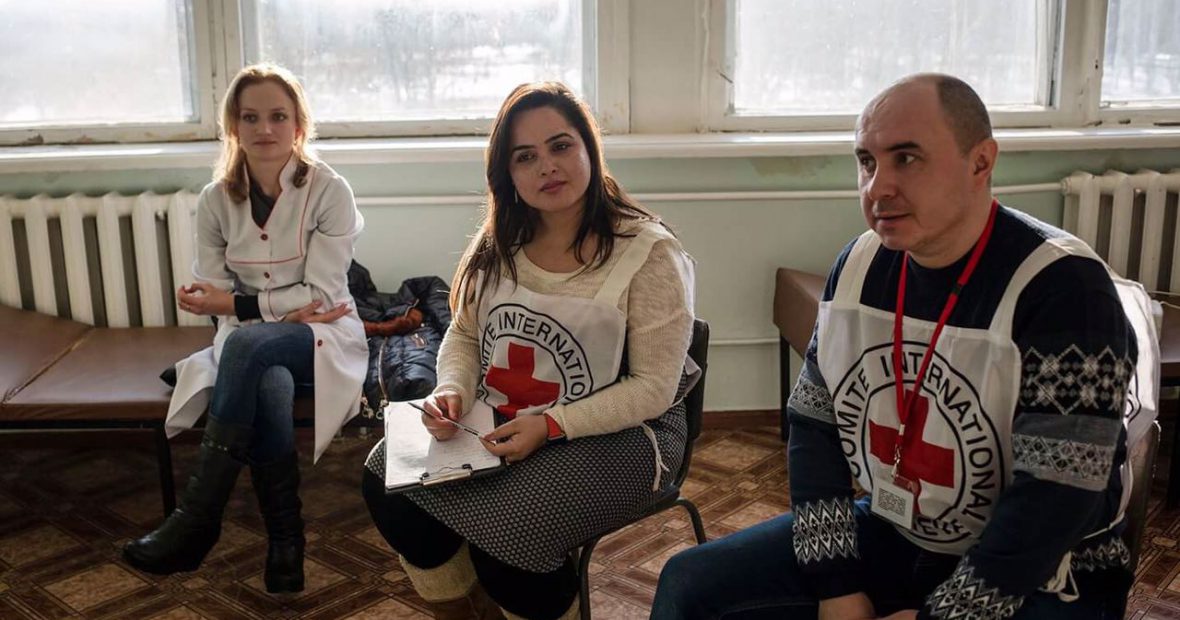The role played by women in disasters, conflict and other situations of violence – be it as recipients of assistance or providers of humanitarian assistance – is a subject of great importance to the ICRC. For International Women’s Day 2017, we are highlighting stories of three women humanitarians from different regions who have taken forward the Red Cross mission to deliver assistance to affected communities.
This piece is by Farhana Javid, ‘Mental Health Delegate’ with the ICRC in Eastern Ukraine. She previously worked with the ICRC’s Regional Delegation in New Delhi as Health Field Officer.
By Farhana Javid
In Eastern Ukraine, doctors, nurses, Red Cross volunteers and a host of other humanitarians strive at the frontlines to help those most affected by the effects of the conflict. Humanitarian efforts here do not only mean working in favour of the affected but also helping aid workers providing frontline relief. Aid workers here constantly strive to do their best and this sometimes takes a toll on their own health. As a mental health delegate there, I spend a few hours with them every week providing mental health and psychosocial support.
The hope and smile on their faces makes my three-hour journey absolutely worth it. It makes me proud when someone acknowledges that our support is beneficial to them and they look forward to our next visit. Our session helps them be resilient, de-stresses them and helps them cope better. While some of them are as young as 20 years old, there are also those who are now septuagenarians. Their tireless efforts to help their people gives me the needed strength to carry on.

Farhana (third from left) with participants from one of the sessions on ‘helping the helpers’. ©ICRC
Ukraine is a big operation and we are in the field four times a week with a regular day work day lasting between 10 – 12 hours usually. It is so gratifying to see the ICRC convoys reaching communities in need, who trust us, believe in our work and know that our presence makes a difference to their lives. Being accepted in a foreign land and fostering mutual respect with the community reinforces the fact that we are respected as an organisation and not only as individuals.
At our sessions, participants take part in an exercise called “tree of life” where they speak about dreams, hopes, and wishes amongst others. During one such discussion, someone came to know that I am from India and told me that for a long time her dream has been to visit the country. This dream stemmed from the Soviet era when she was introduced to Bollywood and grew very fond of it. She now feels that her dream has been fulfilled since she met me and talked to me. Not only did this make me laugh out loud but I was also so touched by this. It is very endearing to see so many people here in Eastern Ukraine singing and dancing to popular Hindi songs – such as Jimmy Jimmy Jimmy. That special moment made me feel right at home and I fell in love with this completely new place and its people whom I will forever cherish.
I have two children – a daughter and a son aged 11 and 8, respectively. While being away from them is very challenging, it makes me happy when I see the admiration they have for the work my colleagues and I do. They are always eager to hear the stories from the field and look up to me as their hero – this makes it all worthwhile!
Read more from our women’s day series:


